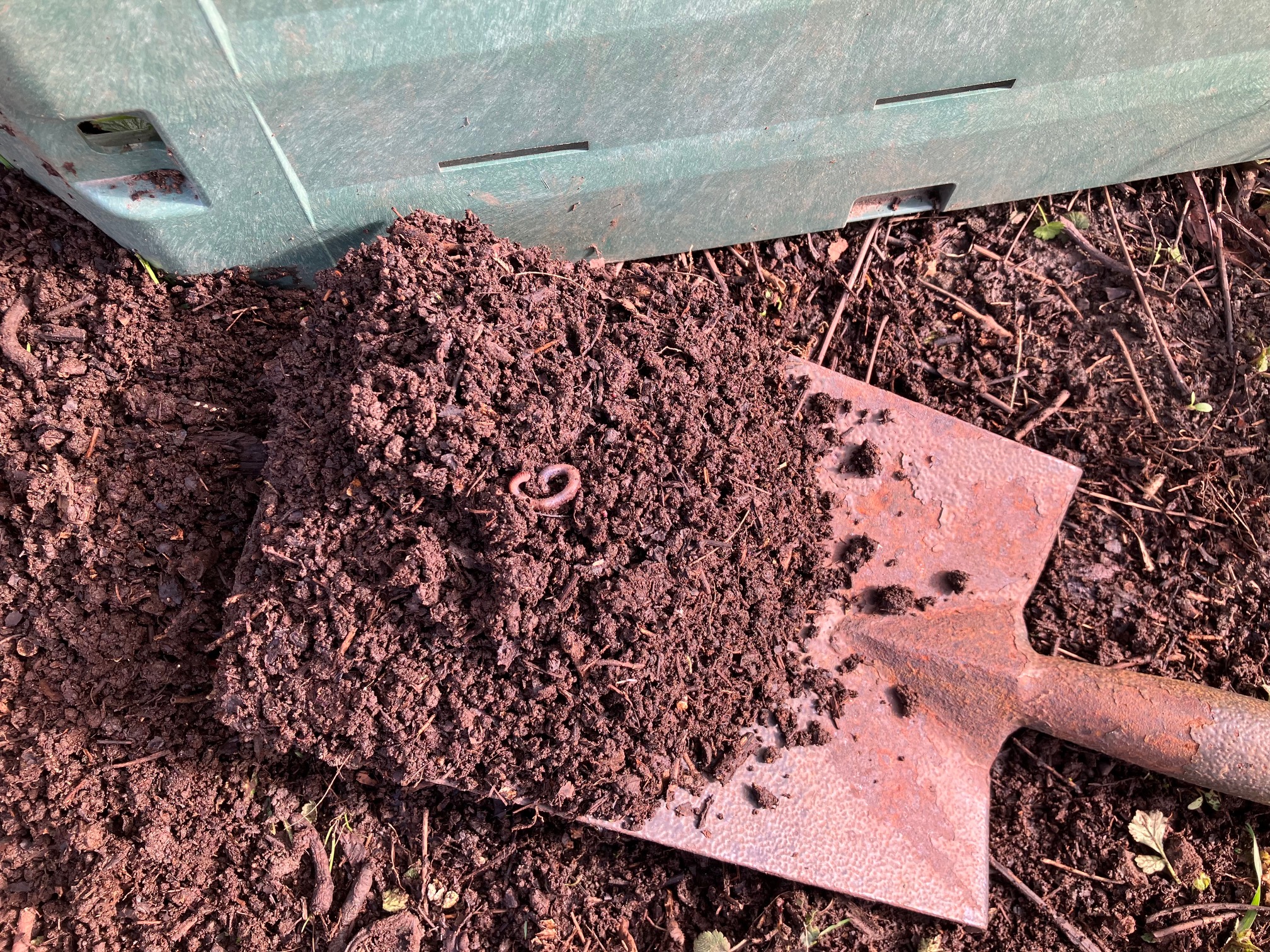You might expect anything written about composting to be down to earth (pun intended) but if you read a lot on the subject, as we do, you’ll know that’s not always the case.
Sometimes you come away from an article thinking you must need a PhD to compost. You wonder how Mother Nature manages without the aid of a spreadsheet and calculator for tracking temperatures and working out ratios. If spreadsheets and calculators are your thing, don’t let us stop you (some of the GGS team are guilty as charged).
But most of us just want simple advice we can follow. That’s why at Great Green Systems we often point customers towards Master Composter Rod Weston’s website (carryoncomposting.com) because it offers straight-forward, practical guidance. So we were delighted to learn that Rod has turned his knowledge into a book.
The Great Green team love this book and anyone who is into composting, or could be with a little encouragement, will love it too. It gives the lowdown on just about every compost bin going so it helps you to understand your own bin better or to choose one that will work best for you.
Rod hopes the book will encourage householders to compost their organic waste ‘and most importantly, to continue composting.’ He acknowledges that people new to composting may encounter various problems while trying to master the craft, but by showing different techniques to deal with issues he hopes to help new recruits to persevere.
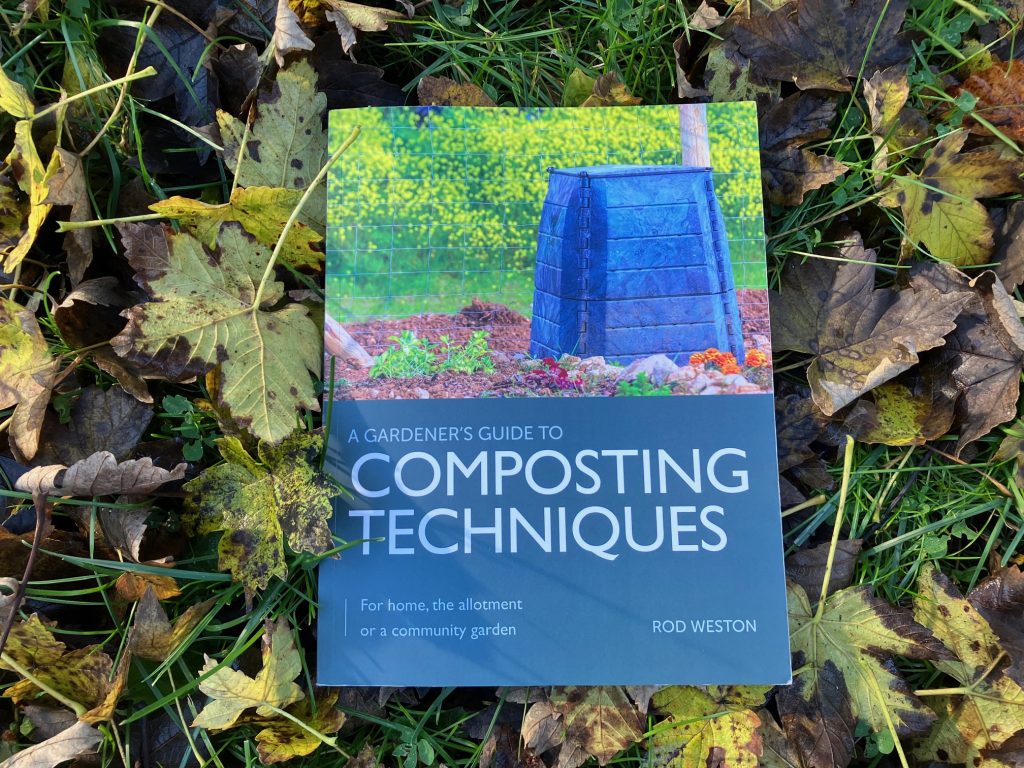
‘The key message is to keep composting, whatever style you adopt,’ he says. ‘All techniques can be modified to suit your own particular circumstances.’
He also hopes to encourage groups to set up small-scale community composting on allotments, at schools, and on community gardens. He points out that if garden and catering waste can be dealt with on site, the environmental costs of transporting it to a central location for processing can be avoided.
We recently paid Rod a visit at the Stokes Wood Allotment site in Leicester, which includes a demonstration site that is home to every composter you can think of. Rod demonstrates different bins and techniques to the public.
The site provides a community composting service for allotment plot holders and also takes food waste from the café on site. Plot holders leave their waste for composting in designated spots and can take compost (and liquid feed) for their own use when it’s ready.
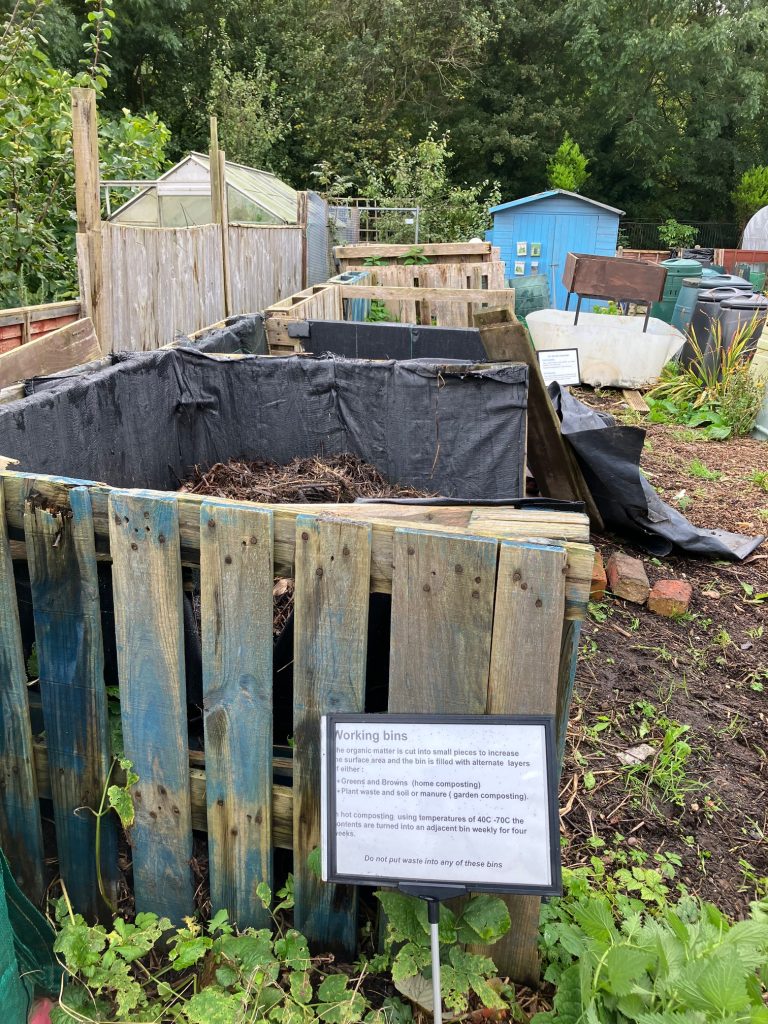
Working bays and bins at Stokes Wood Allotments composting demonstration site
Rod’s book also explains the idea behind the Master Composters scheme. In 2004 around 40 per cent of householders who had started home composting gave up because of a lack of knowledge. Almost two decades later, councils and others now produce information and train Master Composters to provide support. This has resulted in a reduction in the dropout rate to between 8 and 14 per cent. In more recent years this has reduced again to 3.9 per cent. Obviously the scheme has been a great success.
Like many of his generation, as a child Rod helped his father on his allotment ‘in the days when allotments were an important piece of ground that played a major role in providing fruit and vegetables for the family’.
Before becoming interested in the environmental aspects of composting, Rod initially composted on his own allotment in order to dispose of garden waste and to use the compost produced as a soil improver. He says it was his wife who first became interested in becoming a Master Composter ‘but then suggested it to me because she thought it would keep me off the streets!’
On our visit we loved talking to Rod about all aspects of composting. It’s so refreshing in this world of uncompromising opinions to hear his relaxed straight-forward views. Like us he’s pleasantly obsessed but not a purist. Rod’s attitude is that we can all compost – you just have to find a system and bin that works for you. The more people who compost the better it is for all of us and for the planet.
Anyone living in or around Leicester is lucky to have easy access to his talks and demonstrations.
‘If you are interested and want to get involved with your bin, go for hot composting. If you’re lazy or too busy, just go for a cold system,’ he says.
He goes about the business of promoting composting in a practical, fun way, giving talks to garden clubs, allotment societies and schools. For school visits, when talking about wormeries he takes along some slugs and snails as well as worms, knowing his audience will approve.
Other props are a soft toy rat and dog poo (spoiler alert – it’s fake) which is used to explain the workings of a wormery used for dog poo.
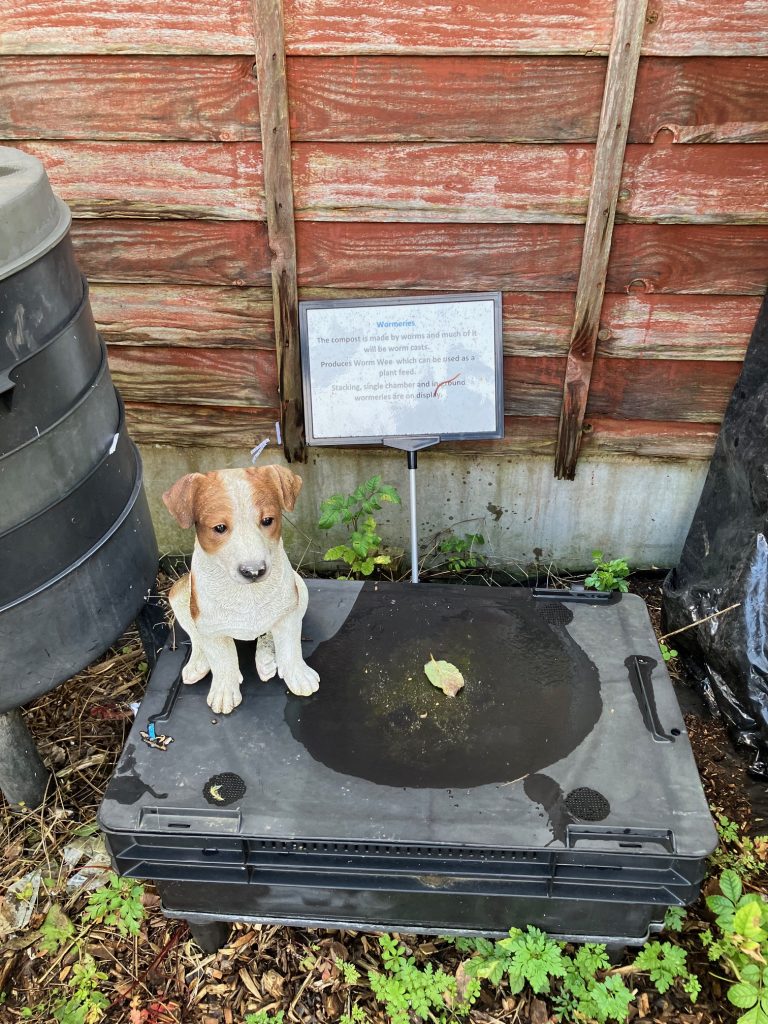
Sitting pretty – on the dog poo wormery
He thinks composting will become more popular as more local authority food waste collections come into operation, since a lot of people could prefer to compost their food waste in their gardens rather than having it waiting for collection by the council.
Rod is a fan of the Green Johanna and has a couple at home as well as one on the site.
‘It just sits there quietly and gets on with its job, breaking stuff down, with no trouble,’ he says approvingly.
Rod told us that badgers from a nearby wood had recently made a nocturnal visit and tried to get into the site’s Green Johanna, but failed.
We inspected the teeth marks on the Johanna’s lid and Insulating Jacket, proud that the Johanna had stood firm. And this Johanna is 13 years old.
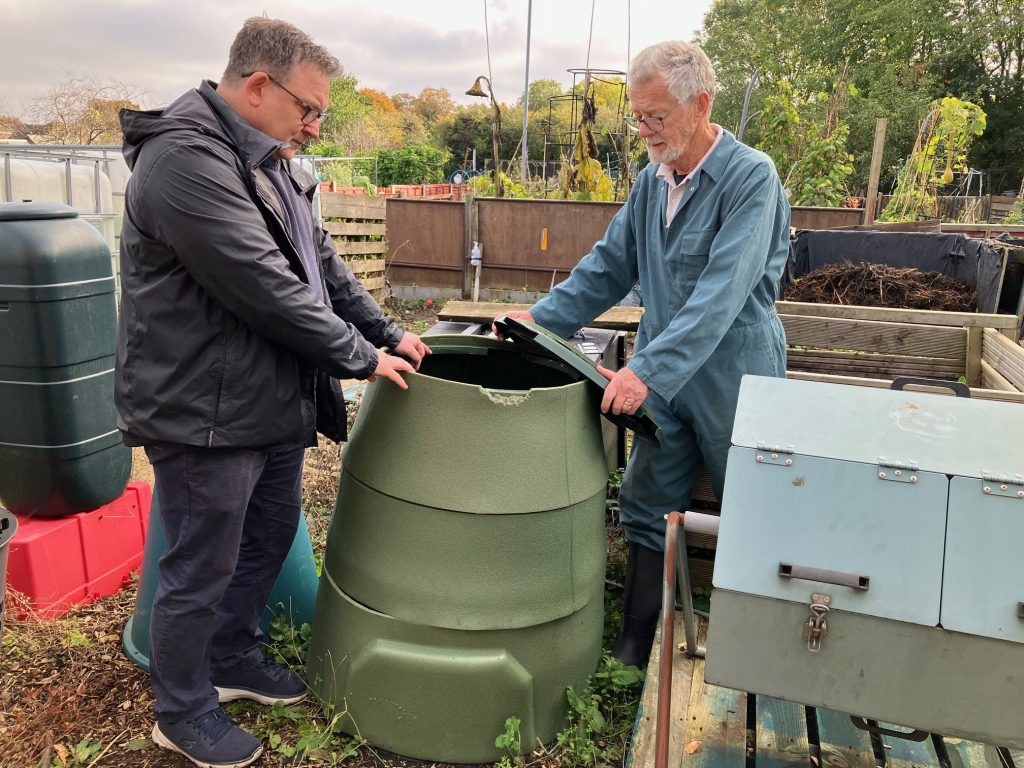
Rod shows Mark evidence of the failed badger attack
The site also demonstrates an old Green Cone, which Rod says has never needed emptying or cleaning.
Apparently the number one problem with Green Cones that people ask him about is caused by the owner not having read the instruction manual properly. The manual states that food waste should never come higher than the top of the Cone’s underground basket, so there should never be food waste inside the Cone itself, which is above ground level. Rod said he has seen Cones that have been filled right to the top like a composter, which would not be a great problem to have to sort out.
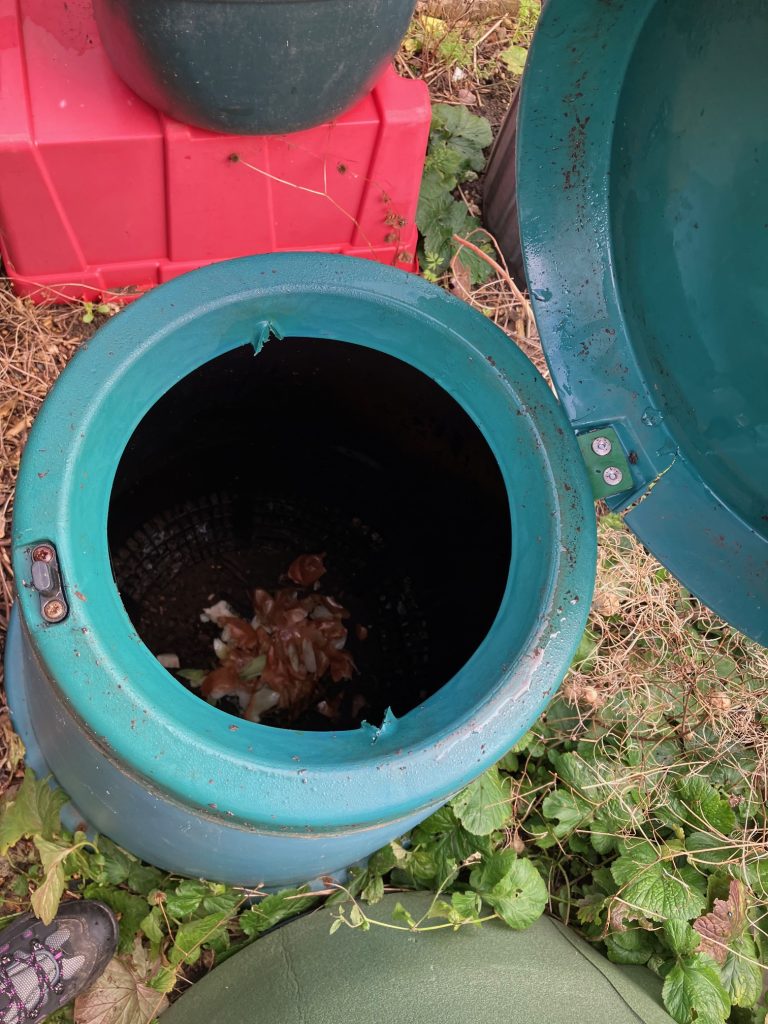
How a Green Cone should work – with food waste only in the underground basket
We appreciated this insight and we intend to make this point much clearer in the next edition of the Green Cone manual so that no one can possibly miss it. Although it’s obviously not much good if people don’t read the manual.
In his book, Rod says: ‘There are almost as many ways of composting as there are composters and, despite what might be read online, there is no single right way of doing anything. If what you are doing works, it must be right for you, although, of course, the method may be open to improvement. The main thing is to enjoy your composting in the knowledge that, while you are improving your soil to produce better crops, you are also, in a small way, helping to save the planet. ‘
Wise words from a Master (Composter).


